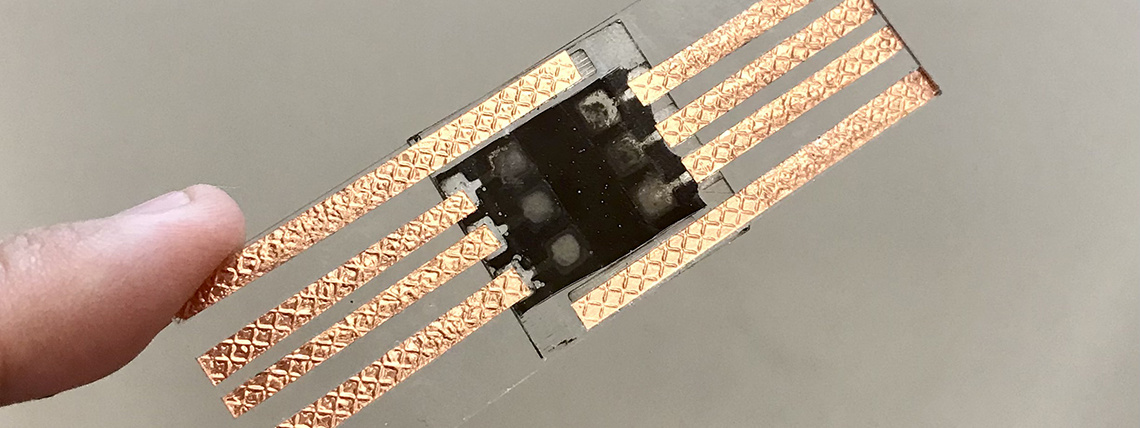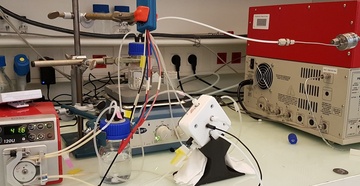The articles of the current edition are available on the new site.

An important recognition has come to the Politecnico di Torino in the field of chemistry. Professor Federico Bella, from the Department of Applied Science and Technology - DISAT, won the first edition of the “Environment, Sustainability & Energy Division Horizon Prize" della Royal Society of Chemistry” award, thanks to his participation in an international project based on the collaboration of colleagues from important universities such as Sorbonne Université, École Polytechnique, ETH Zürich, Benemérita Universidad Autónoma de Puebla, Collège de France and École Polytechnique Fédérale de Lausanne.
The research team designed and built a new all-in-one device that mimics plants and uses CO2, water and sunlight to produce sustainable fuels and value-added chemicals, working on the basic concepts of photosynthesis, the way by which plants convert carbon dioxide into nourishment, thanks to solar energy.
The research, previously published in the "Proceedings of the National Academy of Sciences of the United States of America" journal, was selected by the Royal Society of Chemistry - a world-renowned British institution, founded in 1841, which today counts over 54,000 members in the world - as an example of an important discovery in the fields of environment, sustainability and energy. This award was established in 2020 to highlight the most relevant and cutting-edge discoveries of research and innovation in the field of chemistry. Indeed, the award is dedicated to teams and collaborations that are opening new avenues and possibilities in their field, through innovative scientific developments.
At the heart of Bella and colleagues' research is the electro-reduction of carbon dioxide as a key technology for using CO2 to produce high value-added chemicals (such as hydrocarbons) and as a way to store intermittent solar energy in a durable way. The project aims to develop a low-cost, sustainable and highly efficient system powered by photovoltaics. The results are outstanding: this system is twice as efficient as that used by plants in nature and the prototype was developed with low-cost materials.

In fact, nowadays other types of artificial photosynthesis devices use very expensive metals as raw materials, such as iridium and silver. The award winners, on the other hand, guarantee a process based on cheap and not particularly rare metals, which do not come from conflict zones. In addition, the researchers were able to integrate the different systems needed to carry out the process into a single device, making it easy to manufacture.
In detail, the device is an electrolyser that uses the same copper-based catalyst for both the anode and the cathode and achieves the reduction of CO2 to hydrocarbons (ethylene and ethane) with an energy efficiency of 21%. Subsequent coupling of this system to a state-of-the-art perovskite photovoltaic mini-module demonstrated 2.3% solar-to-hydrocarbon efficiency, setting a benchmark for inexpensive solar-powered electrocatalytic systems.
Since the device uses carbon dioxide as the only source of carbon to produce fuels and chemicals, it could be a sustainable solution to reduce the build-up of greenhouse gases in our atmosphere.
"Devices like this 'artificial plant' bring us ever closer to a closed-cycle economy - comments Federico Bella, who led the activity based on solar cells development to power electrochemical reactors - imagine a world in which fuels come from the same carbon dioxide we produce when we burn them. Potentially, we could stop CO2 emissions and limit the effects of climate change".